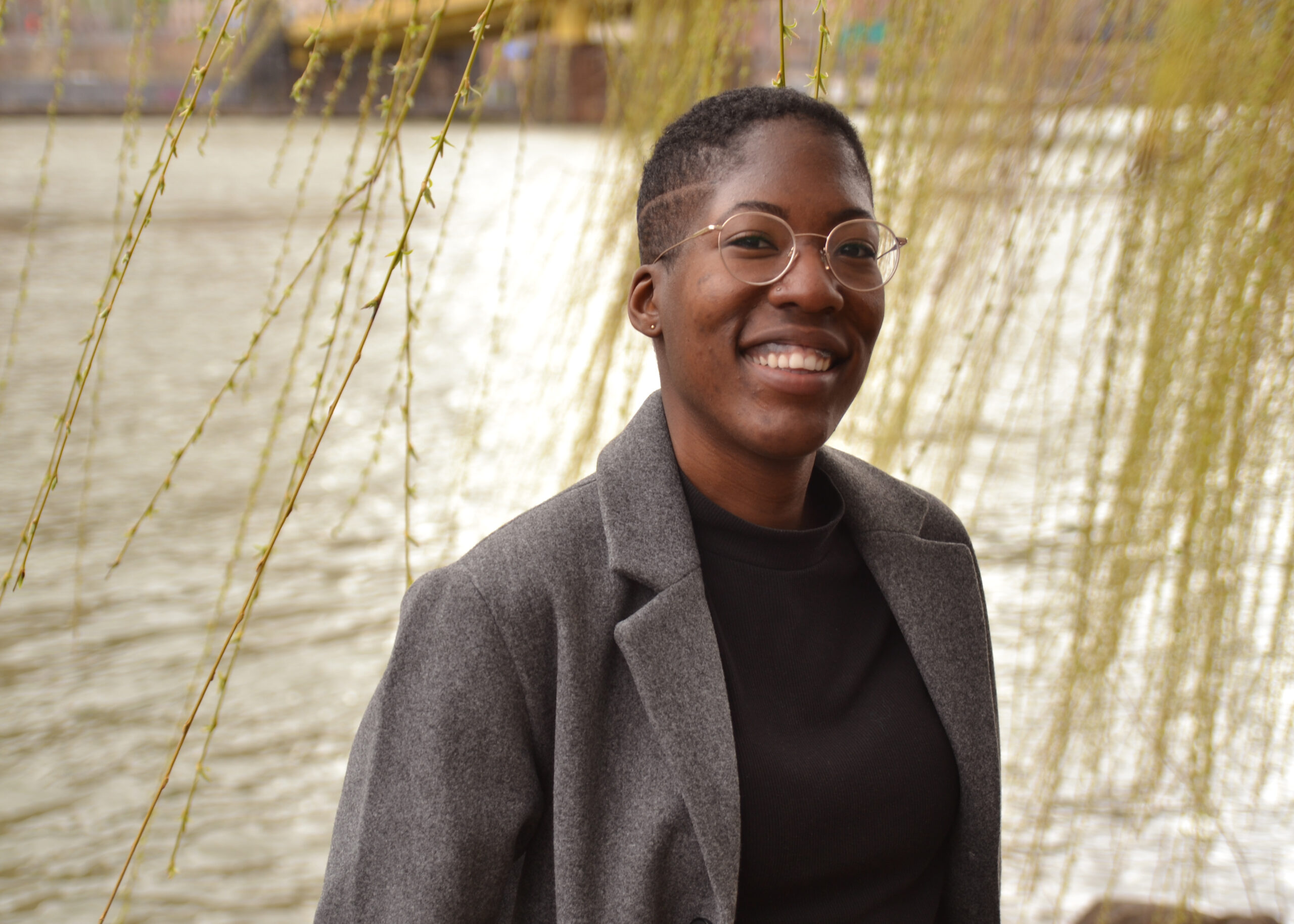The Berkeley Law professor who went viral for calling out transphobia
More of This

Law professor Khiara Bridges called out U.S. Sen. Josh Hawley over transphobia at a hearing Tuesday on abortion rights, and she pointed out that one can fight for rights of various groups of people simultaneously.
Hawley, an anti-LGBTQ+, antichoice Republican from Missouri — which outlawed abortion minutes after the Supreme Court overturned Roe v. Wade — asked Bridges why she was using the phrase “people with a capacity for pregnancy” instead of saying “women” when talking about the effects of abortion restrictions. “Would that be women?” he asked Bridges, a professor at the University of California, Berkeley, School of Law.
“Many cis women have the capacity for pregnancy; many cis women do not have the capacity for pregnancy,” she replied. “There are also trans men who are capable of pregnancy as well as nonbinary people who are capable of pregnancy.”
“So this isn’t really a women’s rights issue,” Hawley said.
“We can recognize that this impacts women while also recognizing that it impacts other groups,” Bridges explained. “Those things are not mutually exclusive.”
“So your view is that the core of this right is about what?” the senator said.
“I want to recognize that your line of questioning is transphobic and it opens trans people up to violence,” the professor said.
Read the story on The Advocate
Less of This An abortion clinic has gone from 100 calls a day to 600
Less of This

This as-told-to essay is part of a short series exploring abortion access in Illinois, which is preparing to become an abortion ‘island’ as surrounding states have banned or have signaled that they will ban abortions in the wake of the end of Roe v. Wade.
Even before the Supreme Court decision three weeks ago overturning Roe v. Wade, we had Missouri, which is right next door to our clinic. The state essentially has almost no abortion care happening because their restrictions had gotten so difficult to comply with for patients and for providers. We’d seen the state go from 6,000 or 7,000 abortion procedures a year to maybe a couple hundred.
So over the past few years, our national ally organizations and membership organizations were all really pushing hard for all of us to really be thinking about how providers and groups that are doing funding and logistical support were going to work together. They wanted to make sure we were thinking about what an unfavorable Supreme Court decision would look like and how that would directly affect our clinic. In the last couple of years, we’ve been doing a lot of work around increasing capacity. But you can’t really increase the capacity until the patients are coming.
We’re a small healthcare organization. We have about 4,000 to 5,000 appointments a year. We’re obviously going to see a significant increase this year, probably more in the 6,000, 7,000 range. We have a pretty big staff, between 30 and 40 staff members at any given time. It’s a 15,000-square-foot building, and we are able to accommodate a lot of staff and a lot of patients at the same time.
Read the story on Slate
Say it Louder The right wing legal movement is a hollow shell
Say it Louder

When Justice Amy Coney Barrett joined the Supreme Court in 2020, conservatives celebrated that “there are now four avowed originalists on the Court.” To those on the right, the latest version of the Roberts Court had the potential to be the greatest originalist Court in history. But this term’s biggest decisions show how wrong those conservatives were—even as they got all the results they wanted.
Although conservative originalists have for years been touting their method as restrained, sensible, and tightly tethered to constitutional text and history, this term blew away such pretenses. If this is the great conservative originalism, then those professing it have finally and conclusively revealed it to be what many skeptics already considered it: a hollow edifice designed to hide an ugly and aggressive ideological agenda.
Read the story on The Atlantic
Speaking Of… The most hated Justice on the Supreme Court
Speaking Of...

Four years after angrily denying sexual assault allegations at his Senate confirmation, Justice Brett Kavanaugh remains the US Supreme Court’s lightning rod no matter how many conciliatory opinions he writes.
Kavanaugh is at the center of the conservative court, joining the majority more than any other justice in the past two terms. He’s less confrontational than some colleagues, often acknowledging the force of the other side’s arguments. In casting key votes to eliminate constitutional abortion protections and expand gun rights, he wrote separately to lay out limits to those rulings.
None of it has mattered, at least to his detractors. Hostility has only grown amid the court’s reversal of the 1973 Roe v. Wade abortion ruling, with protesters regularly targeting Kavanaugh’s home and recently converging at a Washington restaurant where he was dining. He’s still mocked by late-night comedians for his Senate tirade, including his infamous declaration, “I like beer!”
For the critics, he is “a conservative buffoon,” said Barbara Perry, a presidential and Supreme Court scholar at the University of Virginia’s Miller Center. “Unfortunately by virtue of the sex scandal, whether it was true or not, that will follow him.”
Read the Story on Bloomberg








